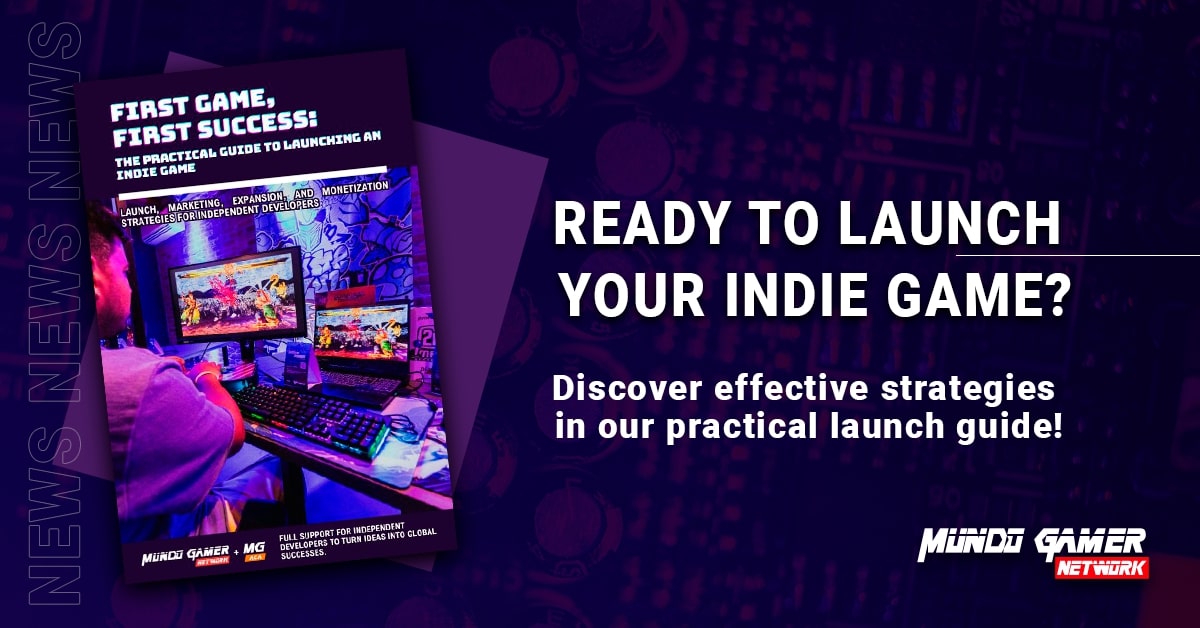The Ultimate Indie Game Guide - Unlocking Success in the Indie Gaming World
Embarking on the journey of indie game development can be both exhilarating and daunting. Whether you're a newbie or an experienced developer, navigating the indie game scene requires knowledge, strategy, and passion. This indie game guide offers comprehensive insights into creating, launching, and thriving in the vibrant world of indie games.
Introduction to the Indie Game Guide

Making an indie game involves more than just coding or designing; it’s about storytelling, marketing, and building a community. This indie game guide aims to provide aspiring developers with the essential steps, tips, and facts necessary for success in the indie gaming industry. From game conceptualization to publication, understanding the key elements of indie game development is crucial.
Understanding the Indie Game Market

Before diving into development, it's important to understand the landscape of indie gaming. The industry is dynamic, competitive, and constantly evolving with new trends and player preferences. An extensive indie game guide will help you identify your target audience, analyze successful titles, and adapt your game to meet market demands.
What is the Role of an Indie Game Developer?
A typical indie game developer wears multiple hats—programmer, designer, artist, marketer, and community manager. Unlike AAA studios, indie developers often work solo or in small teams, which emphasizes the importance of versatility and resourcefulness. Recognizing your strengths and weaknesses is the first step in crafting a compelling, marketable game.
How to Write a Perfect Indie Game Concept - A Step-by-Step Guide
The foundation of any successful indie game is a clear and engaging concept. Developing an idea that resonates with players involves creativity and strategic thinking. Here’s a structured way to write your game concept effectively:
1. Identify Your Genre and Unique Selling Point (USP)
Choosing the right genre aligns your game with specific player preferences. The USP makes your game stand out—whether it’s innovative mechanics, immersive storytelling, or artistic style.
2. Define Your Target Audience
Knowing who your game is for guides your design choices. Whether targeting casual players, hardcore gamers, or niche communities affects gameplay complexity, graphics, and marketing strategies.
3. Develop Core Gameplay Mechanics
Outline the key actions players will perform. Keep these mechanics simple but fun, with room for expansion or customization. Focusing on core mechanics early ensures coherence throughout game development.
4. Design a Compelling Story or Theme
Much like a good film or book, your game should have an engaging narrative or theme that resonates emotionally with players. This enhances replayability and long-term engagement.
5. Establish Visual and Audio Style
Decide on the visual aesthetic and sound design. Consistent style enhances immersion and helps establish your game’s identity. This can range from pixel art to realistic 3D environments.
Special Tips and Tricks for Indie Game Success
Achieving success in the indie game industry involves a mix of creativity, networking, and smart marketing. Here are some special tips and tricks:
- Start Small and Scale Gradually: Instead of aiming for a massive game from the start, develop a manageable project. This reduces risk, accelerates learning, and boosts your confidence.
- Leverage Free or Affordable Tools: Use engines like Unity or Godot, which offer free versions suitable for indie developers. Complement these with free assets and open-source resources.
- Build a Community Early: Engage potential players via social media, forums, and platforms like Discord. Building a community fosters loyalty and provides valuable feedback.
- Frequent Playtesting: Regular testing identifies bugs, balances gameplay, and ensures your game is fun and polished before launch.
- Prioritize Marketing and Visibility: Create an appealing trailer, optimize for app stores, and consider early access releases to generate buzz.
Key Facts about Indie Game Development
To better grasp the landscape, here are some key facts:
- Over 90% of games on platforms like Steam are indie titles.
- Successful indie games can generate revenue from a few thousand dollars to millions.
- Indie developers often rely on crowdfunding platforms such as Kickstarter.
- A significant portion of indie game sales occur within the first few months of release.
- Many indie games gain popularity through word of mouth and social media.
FAQs About Indie Game Development
What are the essential skills needed for indie game development?
Answer: Core skills include programming, graphic design, storytelling, sound design, and marketing. However, versatility and willingness to learn new skills are equally important.
How much does it typically cost to develop an indie game?
Answer: Costs vary greatly depending on scope, but small indie projects can be developed for a few hundred dollars using free tools, while larger projects may require thousands.
How can I fund my indie game project?
Answer: Funding options include personal savings, crowdfunding, grants, investing from friends or family, or pitching to publishers or investors.
What platforms are best for releasing indie games?
Answer: Popular platforms include Steam, itch.io, Epic Games Store, Xbox, PlayStation, and mobile stores like Google Play and App Store.
How do I promote my indie game effectively?
Answer: Use social media, create engaging trailers, participate in game festivals, reach out to reviewers, and build a community around your game early in development.
Conclusion
The indie game guide encapsulates essential aspects involved in creating and succeeding in the indie game world. From understanding market trends, developing a compelling concept, and mastering gameplay mechanics to marketing and community engagement, success demands dedication and strategic planning. Embracing creativity, leveraging available resources, and maintaining persistence are key to transforming your indie game idea into a thriving venture. Whether you're just starting or looking to enhance your existing project, this comprehensive guide offers valuable insights to navigate the vibrant indie gaming industry confidently.